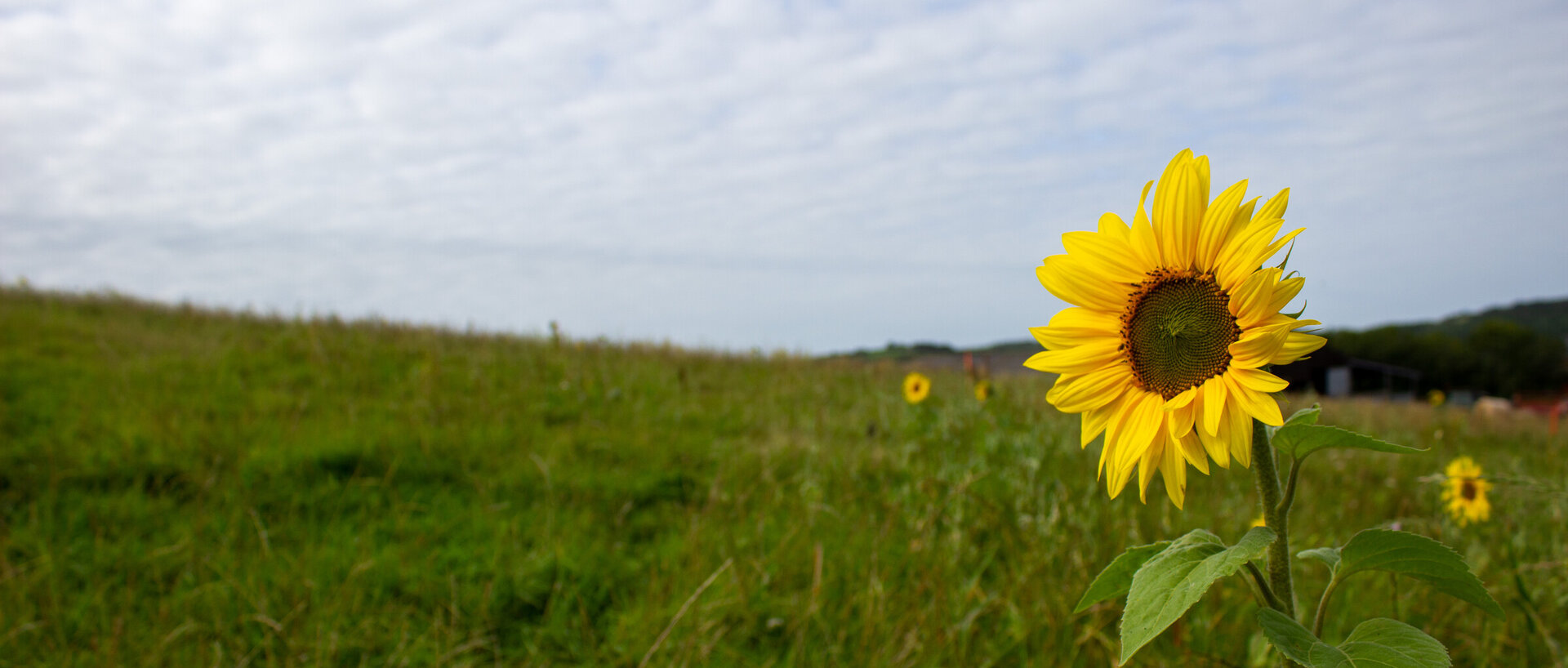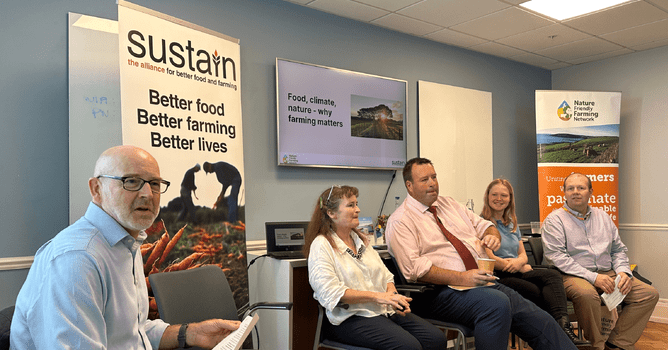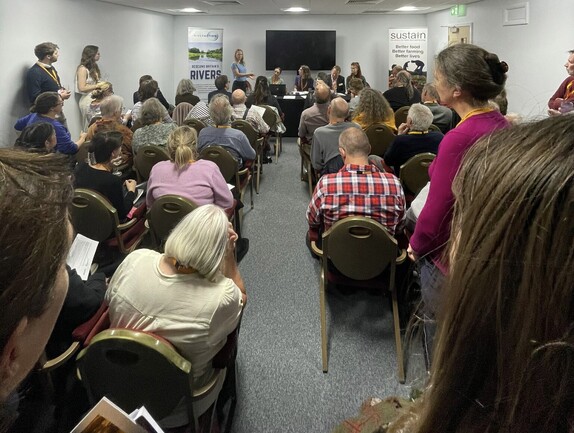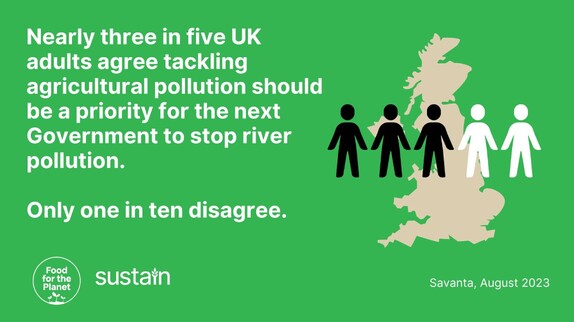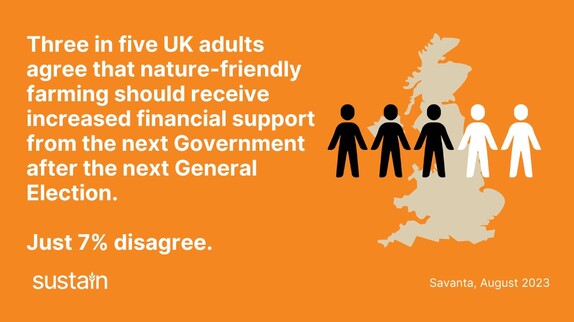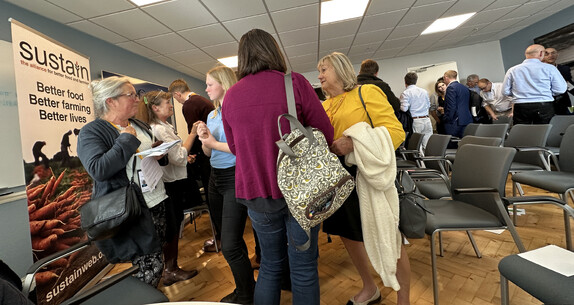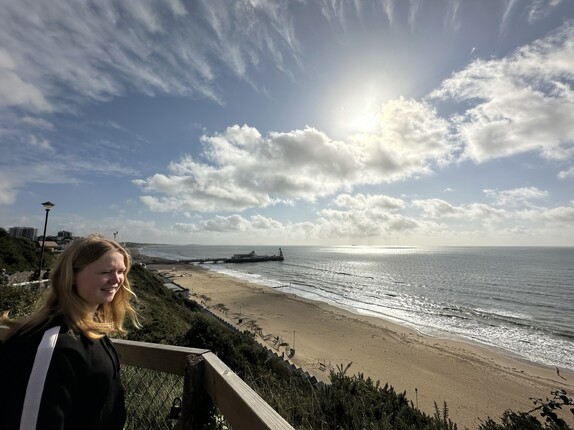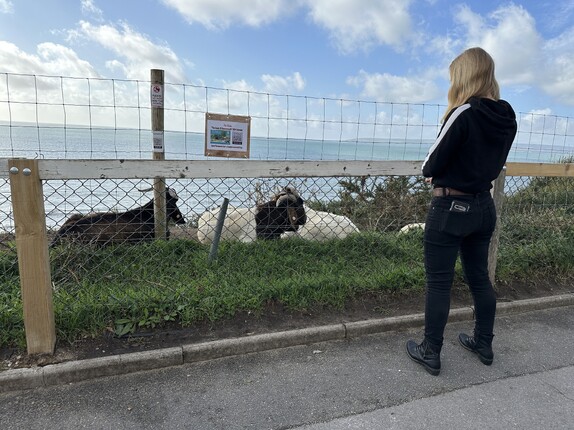I was invited by Sustain to join their panels at a couple of their sessions at the Liberal Democrat conference in Bournemouth last weekend. Making the case for regenerative farming, working with our environment and nature to feed our nation sustainably, I was encouraged to see that both sessions were standing room only, with an interested and engaged audience.
How the Liberal Democrats can save our rivers
The first session was on Sunday evening, with Sustain & River Action UK, in the form of a panel who had an opportunity to introduce themselves, offering their thoughts on river pollution, before the group took questions from the floor.
The panel was chaired by Sarah Whitebread, Account Director at Seahorse Environmental and the speakers were:
Tim Farron - Liberal Democrat MP & Spokesperson for Environment Food and Rural Affairs
James Wallace - CEO, River Action UK
Ruth Westcott - Campaign Coordinator, Sustain
Ali Morse - The Wildlife Trusts
Amy Chapple - Redwoods Farm
Sustain research on river pollution found that soils in every region in England are in nitrogen surplus and phosphate – which is present in animal manure and fertilisers - accounts for more water bodies failing to achieve good ecological status than any other water quality pressure.
However, Ruth Westcott was keen to stress that not all farming is bad; it is a nuanced discussion, with some specific sectors of the industry and types of farming causing more issues than others.
There was discussion on routine antibiotic use being reduced, now more limited to intensive indoor lambing, along with routine wormer treatment being reduced with faecal worm egg count testing carried out instead, resulting in treatment only where necessary. Both of these result in less water pollution, although it was noted that this needs more education within the industry.
Sustain research shows that public support is high, with 3 in 5 adults agreeing the government should make agricultural river pollution a priority. So it is clear that agriculture needs to take ownership of the problem but with the whole supply chain being held accountable and it should also be recognised that we can be part of the solution too.
Great to hear from Amy of @redwoodsfm near Tiverton at #LDConf about mitigating river pollution. In Devon, we have some excellent farmers like Amy who care deeply for our environment. We need to work with farmers to protect our precious ecosystem. pic.twitter.com/114TDOle9d
— Richard Foord MP (@RichardFoordLD) September 25, 2023
Food, climate, nature - why farming matters
This session was held late morning on Monday with Sustain and the Nature Friendly Farming Network. Looking at how to balance food production with delivery on environmental goals, the use of nature friendly farming methods formed a key part of the discussion.
Again following a panel format, with chair Philip Clarke, Farmer's Weekly News & Opinion Editor, putting questions to the panel before taking questions from the floor. It also included a throwback to the gameshow "The Price is Right" with some fun gauging audience expectation on Sustain's polling numbers (see below). The panel comprised:
Stuart Roberts - Cereal, beef & sheep farmer & farming policy advisor for the Liberal Democrats
Vicki Hird - Head of Sustainable Farming, Sustain
Martin Lines - Arable farmer & CEO, Nature Friendly Farming Network
Amy Chapple - Redwoods Farm
NFFN & @UKSustain's session on balancing food production with environment goals at @LibDems conference
— Nature Friendly Farming Network (@NFFNUK) September 25, 2023
Martin Lines: “Climate change isn’t coming, it’s here. It’s affecting my business & increasing the challenges. We farmers need to take ownership of the solutions” #LDConf pic.twitter.com/11kh73JlC2
Questions for the panel included:
Why does farming matter?
This gave each of the panellists an opportunity to say why they believe farming matters from their perspective.
Sustain believes a self-sustaining UK food network without reliance on government funding is essential, but with fair terms from supermarkets. Vicki Hird stated that we need to de-risk agroecological transition, make supply chain more transparent with regulatory support and build up alternative routes to market, to give us food security. "We need to invest in farms of all sizes" says Vicki, "to deliver a resilient food system, with no net loss of farms."
I would also reference here the current Riverford Organics/Wicked Leeks #GetFairAboutFarming campaign for fairer terms for producers from supermarkets, which focuses on 5 key points:
Pay what you agreed to pay
Buy what you committed to buy
Agree on fair specifications
Commit for the long term
Pay on time
It's certainly worth a look and support it if you can, as it is only with public pressure that change occurs.
Should the government seek to change how we farm to tackle climate change? (with Sustain polling accounts for 55% of the public in agreement)
Whilst government can support and help accelerate farming transition to nature friendly farming, the industry itself needs to embrace it more widely and drive change.
Should tackling agricultural water pollution be a priority for the next government? (Sustain polling shows 58% of the public in agreement)
Stuart Roberts suggested that nutrients causing pollution in water courses could be extracted and re-applied elsewhere in the country where needed and that government support could be in the form of infrastructure to facilitate this. It was also noted by the audience that changes to housebuilding pollution has been in the media recently and that other pollution factors should be included in this work.
Should nature friendly farming receive increased government support? (Sustain polling reports 59% of public in agreement)
Martin Lines states there are many thousands of farmers trying to manage the balance for nature, climate & food. "We often talk about government money, but its our money and we need to make sure it is supporting the right results in the right landscapes."
Certainly the public agree, as 3 in 5 adults agree nature friendly farming should receive increased financial support, with just 7% in disagreement according to Sustain's research.
Final thoughts
Ensuring that farming voices are heard as part of the conversation and can be part of the solutions is key. Farmers are practical people (and inherently nosey!), so learning from others, seeing how they're farming can be achieved with farm tours and knowledge-sharing events. It's about behaviour change not only within the industry, but also policymakers and consumers too.
Obviously, there's no one fix for any of the issues facing the industry and the environment, but it's about working together on finding and implementing a range of solutions for the common goal of regenerating our environment for health soil, healthy planet & healthy people.
Overall, I was really encouraged by these events, with a lot of positive talk about how we can work together to solve these important issues. The level of engagement of the audience after the events wanting to continue the conversation and ask more questions was brilliant too and we need to keep that going.
After breakfast on Monday, I was able to take a moment to appreciate nature in the form of the vastness that is Bournemouth coast.
Oh, and of course, you can take the girl out of the farm . . .
I was still able to find some animals, even at a conference, in the form of the Bournemouth Goats! 🤣
